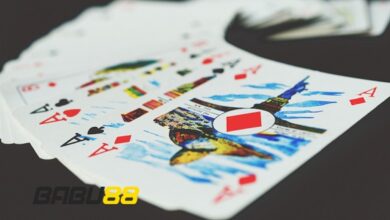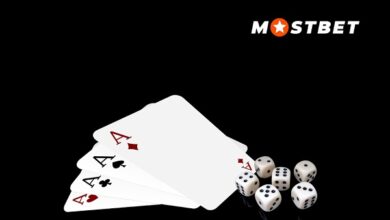Elden Ring Best Starting Class: Beginner’s Guide

From Software’s newest epic open-world game Elden Ring has finally been released and players everywhere are just starting their journeys across the Lands Between. One of the first and most important decisions any Tarnished will have to make as they begin their adventure is which starting class to choose from.
With 12 unique classes to pick from, each with their own predefined attributes, equipment loadouts, and playstyles, deciding on the “best starting class” in Elden Ring can seem daunting. In this guide, I’ll provide an overview of each class, their strengths and weaknesses, and help you determine which starting class may be the best fit based on your preferred playstyle as you embark on your first Elden Ring experience.
Classes in Elden Ring
Before diving into the individual classes, it’s important to understand how classes work in Elden Ring and how they ultimately don’t lock you into a specific build long term.
Each class starts with different base attributes in Vigor (health), Mind (FP), Endurance, Strength, Dexterity, Intelligence, Faith, and Arcane. They also have varying equipment like weapons, armor, and spells to begin the game. However, as you progress you can redistribute your rune points to upgrade any attribute you want, allowing you to transition between builds over time.
The starting class only matters for the first 1-10 hours of the game. After that, you have full control to respec your character however you like. So don’t stress too much about picking the perfect class – you have plenty of opportunities to experiment later on.
With that context in mind, let’s take a look at each of the 12 starting classes in Elden Ring:
- Hero – The Hero class starts with high Vigor, Strength, and Dexterity attributes, making them well-suited for dual-wielding early on. They also come with strong armor and weapons like the two handed Brick Hammer. A good all-around choice for new players focused on melee combat as there are many meta but cheap Elden Ring items that can be used for this class at early game.
- Bandit – Prioritizing Dexterity, the Bandit excels at dealing critical hits with daggers and thrusting swords. They come equipped with the Scavenger’s Curved Sword and begin with basic throwing knives. Better suited for an aggressive playstyle relying on quick attacks and critical hits.
- Prophet – With their high Faith attribute, the Prophet specializes in casting holy incantations. They start with the Erdtree Seal to cast healing and protection spells right away. A solid choice for a support/caster based build focusing on faith-based magic.
- Vagabond – Providing a balance of attributes with an emphasis on Vigor and Strength, the Vagabond can handle both melee weapons and some magic. They come equipped with sturdy armor and the Longsword, making them a versatile choice for new players.
- Warrior – Like the Vagabond but focused more on Strength than Vigor, the Warrior is ready for slow but powerful weaponry from the beginning. They wield a broadaxe and come prepared for close combat draining enemies of HP quickly with heavy attacks.
- Astrologer – With high Intelligence and Mind, the Astrologer allows aspiring sorcerers to blast enemies with magic spells right from the start. Equipped with a basic staff and magic glintstone to experiment with early sorceries. Best for intelligence or magic-focused builds.
- Prisoner – Balancing Dexterity, Intelligence, and Faith, the Prisoner has a diverse array of options between melee weapons and utility spells. Equipped with a dagger and glintstone arc for a glass cannon-esque versatility. A good choice for hybrid or unique builds later on.
- Samurai – Prioritizing Dexterity above all else, the Samurai excels with katana-style weapons relying on quick strikes. They start with the Uchigatana and armor set for the authentic samurai experience from the beginning. Ideal for dexterity focused builds devoted to fast melee attacks.
- Confessor – Similar to the Prophet but with more emphasis on Faith and Vigor instead of just Faith. Equipped with a mace and holy themed incantations, the Confessor is ready to support allies or themselves in combat from the start. Solid choice for faith magic focused on both offense and healing/buffs.
- Wretch – Starting with the lowest attributes of any class but also the most runes to spend freely as you please. They begin with no equipment whatsoever for the most challenge in the early game. Only recommended for very experienced Soulsborne veterans looking to fully customize their build from scratch.
- Bandit – Prioritizing Dexterity, the Bandit excels at dealing critical hits with daggers and thrusting swords. They come equipped with the Scavenger’s Curved Sword and begin with basic throwing knives. Better suited for an aggressive playstyle relying on quick attacks and critical hits.
- Vagabond – Providing a balance of attributes with an emphasis on Vigor and Strength, the Vagabond can handle both melee weapons and some magic. They come equipped with sturdy armor and the Longsword, making them a versatile choice for new players.
Each class focuses on 1-2 attributes primarily and provides starting gear tailored towards the playstyle associated with those attributes. Now it’s time to determine the best class for you based on your preferred build goals.
Determining Your Playstyle
Before picking a “best” starting class, the first step is deciding what type of playstyle appeals to you most in Elden Ring:
- – Melee Focused: If you want to specialize in fighting enemies up close and personal with weapons like swords, hammers, halberds, etc. then look at the Melee-Friendly classes below.
- – Magic Focused: If casting spells and relying on sorceries, incantations, or a hybrid of magic/melee catches your interest more, consider the Magic-Friendly classes.
- – Support Focused: Healing allies and empowering them with buffs may suit your style. Have a look at the Support-Friendly options.
- – Hybrid: Maybe you want a balanced character that can handle different situations. The Hybrid classes allow flexibility with both combat styles.
Within those broad categories, there are subclasses of playstyle to consider as well:
- Strength vs Dexterity: Do you prefer slow heavy hits or quick successive strikes?
- Intelligence vs Faith: Sorcery or Incantations – what magic appeals most?
- Tanky vs Glass Cannon: How much survivability versus damage output do you want?
Once you’ve narrowed down your preferred general focus (Melee, Magic, Support, Hybrid) as well as specific attributes you aim to invest in most, the ideal starting class should become clear.
Now let’s match up some top starting class recommendations based on the most common Elden Ring playstyles:
Melee-Friendly Classes
For those seeking to get up close and personal in Elden Ring’s combat, here are solid starting class options:
Strength Build – Warrior/Hero
– High starting Strength attributes for powerful weapon damage
– Tanky armor and HP for shrugging off blows
– Weapons start slow but hard-hitting
Quality Build (Str/Dex) – Vagabond
– Balanced Str/Dex lets you experiment freely
– Versatile offensive and defensive capabilities
– Great all-round pick for new players
Dexterity Build – Bandit/Samurai
– Dexterity focused for rapid successive attacks
– Critical hit potential with daggers/swords
– Better at revenges or fights against multiple enemies
Magic-Friendly Classes
If incantations, sorceries or a blend of magic/combat is your goal, the following classes enable strong spell-slinging from the start:
Intelligence Build – Astrologer
– Highest Intelligence for maximum sorcery prowess
– Low HP but big damage potential with spells
– Needs patience and spacing in early stages
Faith Build – Prophet
– Incantation focus with good healing options
– Moderate stats make spells less risky than pure INT
– Better survivability than Astrologer early on
Hybrid Intelligence/Faith – Prisoner
– Balanced Magic attributes with melee options
– Flexibility for experimenting freely
– Jack of all trades but weaker early game
Support-Friendly Classes
For those wanting to empower allies, here are classes ready to lay down supportive magic:
Healing/Buffs Focus – Confessor
– Faith centered incantations like weapon buffs
– Starts with healing spells and armor for the frontlines
– Ready to aid party both offensively and defensively
Hybrid Healing/Melee – Vagabond
– Good Str/Fth balance for versatile melee/support
– Higher HP for weathering fights alongside teammates
– More self-sufficient than pure support options
Hybrid Classes
Finally, if you want well-rounded characters capable in many areas:
Quality Build – Vagabond
– Balanced attributes allow experimenting freely
– Adaptability for any situation with weapons and magic
– Solid armor and HP for new players
Hybrid Intelligence/Strength – Prisoner
– Strike a balance between magic and weapon combat
– Flex to fill any needed role on quests
– Better early survivability than pure INT




